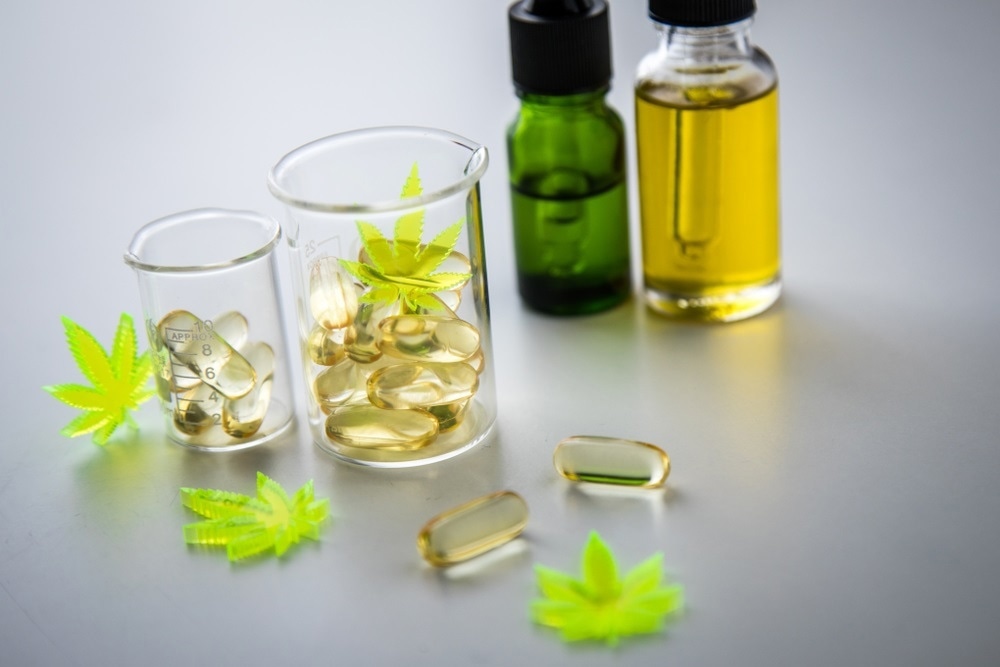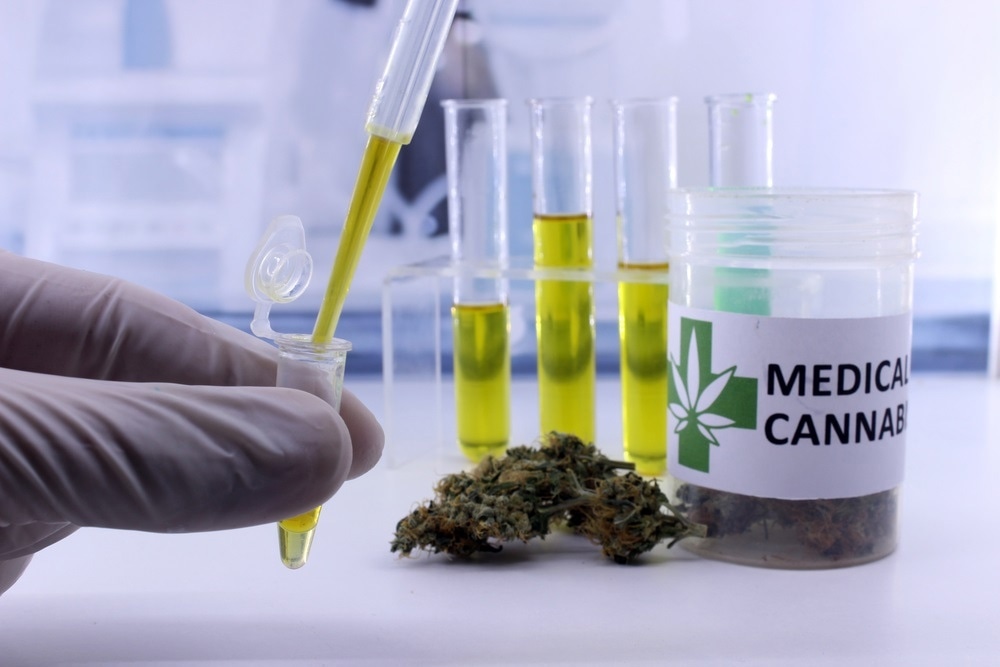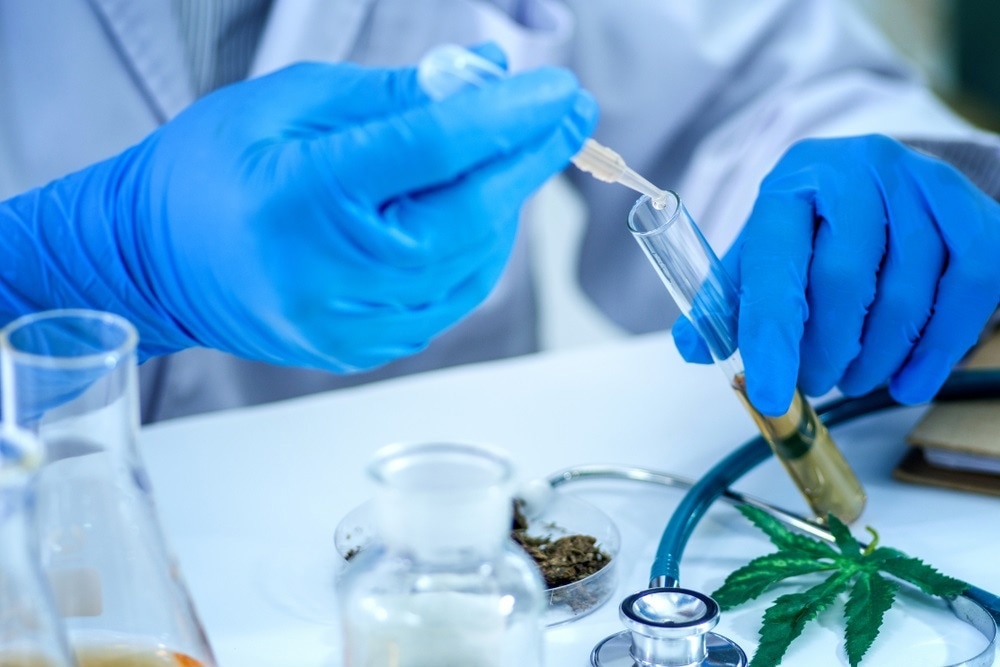Sponsored Content by PittconApr 30 2020
Since we last spoke, please could you give us an update on your efforts as the advocate for improving the quality of medicinal cannabis products?
The cannabis industry is such a fast-moving industry from one year to the next. So much can change and happen. Last year, we launched the East Coast edition of our Cannabis Science Conference, and now we're hosting a Spring edition on the East Coast of the U.S. and our Flagship Show in Portland, Oregon, in the late summer too.
It's been great to see the need for more education, and obviously we've seen a medical cannabis revolution, in a sense, on the East Coast markets. When we launched the show in 2016, it was mostly a West Coast conversation.
It was also great to launch the show in Baltimore, which is also my hometown. We're getting ready to head back to Baltimore again for our upcoming show. It's just been great to work together with the advocates and leaders of this industry and continue to bridge the gaps between traditional science and medicine and the cannabis industry.

Image Credit:Shutterstock/ChristianKlose
The relationship between cannabis and the analytical chemistry industry is ever-changing and evolving. Why is it important that these two markets work hand in hand?
Bridging the gaps between the analytical science community and the cannabis industry was one of the main driving factors that started the Cannabis Science Conference. When we spoke last year at Pittcon, I mentioned how at the 2014 or 2015 Pittcon, talking about cannabis was very taboo. A lot of people didn’t want to talk about it, but now we've seen such a revolution in that.
That was our primary goal, to bring these communities together, and I think we've done a great job in doing so. We're seeing a lot more involvement from the analytical instrument manufacturers, the sample prep providers, and even academic cannabis. We're seeing programs, all over the U.S. at least, that are starting to implement cannabis in their education for university.
Illinois legalized recreational marijuana last year and more recently Kentucky passed the legalization of medicinal marijuana. How are you helping combat the stigma against marijuana?
Stigma really is at the whole core of this entire industry and this community. I always like to point out that cannabis has been used and accepted as a medicine in society and in the world at large, for far longer than it has been prohibited.
This goes back to ancient Chinese medicine, ancient Indian medicine, ancient Egyptian medicine. This is something that was brought about from propaganda and reefer madness if you will, and the monopolization of America and industries like pharmaceuticals and paper. I always say that cannabis has been stigmatized because of this misinformation and propaganda over the past 50 or more years, and it's great to see that we're starting to dig our way out of that long era of misinformation.
But in reality, the stigma was created because of the need to monopolize the American industries as well as greed and racism. If you look back in time when the prohibition of cannabis and monopolization of these industries was happening, it was targeted against communities of color. This really stigmatized these communities.
We're still seeing that today where people are still in prison because of cannabis offenses, even though this is such a huge market all over the world and millions of dollars are being made from it. There are great groups like the Last Prisoner Project that are working to get people out of prison who are nonviolent cannabis offenders. The contradiction is evident: one person can make a million dollars off this industry, but another person is still sitting in prison because of doing the same thing but only before it was technically legal. We still have a long way to go.
Combating the stigma is difficult. But I think that what we do is combat stigma with evidence in research and science. What we do in bringing together the world's leading researchers and scientists and medical professionals to share their knowledge and data is the best way to combat stigma and normalize cannabis further.
Currently, in the cannabis industry, the standards and benchmarks for drug delivery, analytics and testing, consumer reporting, and packaging are of a basic nature and there is substantial room for more sophistication and technology. What role can analytical chemistry play in this development of sophisticated technology?
Analytical chemistry is already playing a huge role in the cannabis community. Concerning cannabis testing labs for quality control, we're seeing that this is one of the fastest growing and most profitable segments of the cannabis industry. Sometimes that gets overlooked when you think of cultivation and owning dispensaries, but testing is obviously such an important part of it.
We continue to see these leaders in science play a role in the advancement of this, and one of the biggest issues is that cannabis testing still is not standardized. So, we're trying to work towards getting cannabis testing standardized as much as possible, and as fast as possible because this is something that people are using as a medicine. It's very important that this is a medicine that people can stand by.
Obviously, I'm very passionate about quality control in general, and we're here at Pittcon, which is an analytical science show that caters to not only food but pharmaceuticals. But now it caters to the cannabis industry as well. You can see that we're seeing a marriage of analytical professionals getting together with the community and trying to advance technologies and standards.
The Importance of Cannabis Testing
The Importance of Cannabis Testing from AZoNetwork on Vimeo.
Can industries such as the pharmaceutical industry help the cannabis industry leverage technology for further development? If so, How? Are there other industries or applications that the cannabis industry can leverage to help with this?
I absolutely think that there is a lot of room for the pharmaceutical industry and the cannabis community to collaborate and work together. Again, that ties into bridging the gaps. I think they are two communities that can learn a lot from each other.
I know that a lot of folks that are just cannabis-industry-specific people don't really have their foot in both sides of the conversation as I do. I always say I spend half of my time at science shows and the other half at cannabis shows, but to the general cannabis community, some are scared of pharmaceutical involvement because they fear that pharmaceuticals will come and take over the entire industry.
I always advocate and push for it being almost a marriage of knowledge sharing and information, because the leaders of this industry have developed the cultivation techniques and the processing, and turned this into a medicinal, high grade medicine. It's so different than it was in the '60s or '70s, and sometimes I jokingly say, "It's not your parent's weed anymore." What I mean by that is that it's not the level of quality of cannabis that's been developed over the past few decades. It's just incredible.
So, I really feel that there is a lot of room for involvement from pharmaceutical, but I strongly feel that both communities need to respect each other, their position, and their knowledge, and learn from each other and then grow this industry together. I always tell people in the industry that have reservations about pharmaceuticals that you can't expect to have legalization and normalization without regulation on a federal level.
So, if this is legalized federally, I think we will see a lot more of that. But I think preparing for that and getting these communities together to network and learn from each other before that happens is probably the best idea.

Image Credit:Shutterstock/Flapas
Some states in the U.S. don't perform quality analysis or quality control on cannabis related products. Why is this troubling? Why is the testing of cannabis extremely important?
One of the things that really piqued my interest to get involved with this industry was the fact that I realized that California, at the time, did not require cannabis testing at all. There were no requirements at all to test cannabis for quality control. Coming from a background of analytical science recruiting and working in this field, I found this really troubling because I didn’t understand how a product like this, that people are using in medicine, is not being tested for quality control, especially when you come to shows like this and anything that comes into human contact, basically, especially that's regulated, is being tested for quality control.
So it was troubling to me, and I connected early on with people that were actually using cannabis to treat their children that had cancer and things like that. I was connected with a lady named Tracy Ryan in California who had an eight-month old daughter who had an optic pathway glioma brain tumor and was going through chemotherapy and other dangerous treatments that can help but are also detrimental to the body. They were using cannabis as an option to treat their baby in a market where it was not required to have cannabis tested for quality control.
I think it's extremely troubling to see that some of these markets are still not requiring cannabis testing, because when you look at cancer patients and other patients that are immunocompromised from conditions or treatments that they're going through, it's very important that the cannabis that they're using is contaminant free and it doesn’t contain things like molds and heavy metals and pesticides and solvents.
The issue with pediatrics and geriatrics and cannabis use is obviously, children are not smoking cannabis. They're not smoking joints or marijuana. They're using concentrated tincture oils. The danger in that is when you take contaminated cannabis and you put it through an extraction process, you could potentially not only be extracting cannabinoids to a more potent, higher level, but if there is contamination present, you could potentially be extracting contamination to a higher level as well.
So, especially for the immunocompromised individuals, that could be very troubling. As a result, I feel that cannabis testing is hugely important, and I feel every market that has this should absolutely require it. We're still trying to figure out the standardization of cannabis testing, and that's an issue because we're seeing that not everyone is using the same rule book. Different labs are using different instrumentation and different techniques to do their testing, and that can obviously cause variables in results.
We've seen issues such as if you take a cannabis sample and send it to five different laboratories, you're likely to get five different results just because not everyone is using the same techniques or instrumentation. Requiring cannabis testing in all these markets, and furthermore, standardizing this process, is a big passion of mine.
What further advancements in the cannabis industry do you foresee happening over the next coming months and years?
I feel we're going to see a lot more research coming out of the U.S concerning cannabis. A dear friend of mine, Dr. Sue Sisley, actually has a Schedule 1 research license to study the effects of the potential therapeutic effects of cannabis for PTSD in veterans. One of the issues that she faced in her research was that there's only one source of cannabis currently for medical research purposes, and that's coming from the University of Mississippi, which is being cultivated with standards from the National Institute of Drug Abuse.
The standards that they're cultivating with are actually pretty archaic and they're not going back to what I said before about creating high grade products; it's more in line with what I said about your parent’s weed than what is actually on the market now.
However, one of the great promising things with that is, after her first trial, Dr. Sisley actually opened up a federal lawsuit against the DEA and won her case, based on the federal monopoly of cannabis for research. Obviously, it's not going to be tomorrow when she gets access to better cannabis to use for her research, but it is a step in the right direction.
I honestly feel that we're going to see the legalization of this plant within the next year or so, if not sooner. I think that this is a plant that, as I said before, has been stigmatized for so long, but really could help our country and our world in so many ways. If you look at the numbers of how much money and taxes that have come in from cannabis markets all over the country and world, it's astonishing. We're currently having financial crises all over the world, and I think that the job market especially could be helped by this.
I believe there are a lot of ways that this could really positively impact human culture, and I feel that we're closer than ever to that. I think that we have to speak as one, collective voice as much as possible. I know that can be difficult, especially in an emerging industry like cannabis, but the more that we can get together and be on the same page, the more chance we have, when this does happen federally, of helping define the rules and the way that this industry will go when it is a federal industry.

Image Credit:Shutterstock/nhungboon
How can the Cannabis Science Conference help educate and improve technical cannabis science at this crucial time?
We have been at the core of an analytical science show that caters to the science behind cannabis, and cannabis testing, and everything with that. We have played a role in bringing people together and helping to advance this industry, and connecting the genius cultivators with the genius analytical professionals, and networking and building collaborations between them.
We had one individual that attended our show who got a chance to meet Dr. Dedi Meiri from the Technion Institute in Israel, who's one of the world renowned researchers on cannabis and cancer. He actually went from meeting Dr. Dedi at our show to going to Technion in Israel and studying under him for three years. So that was great. He'll be giving a talk about his journey working under Dedi for that time at our next show.
We have been really excited to see the advancement in academia. For instance, at our show coming up, we talk about the University of Maryland School of Pharmacy. It just recently rolled out a Cannabis Science Master's Degree program, and we'll have the Dean and the organizer of that program speaking at our show. We’ve also seen that Northern Michigan University is now doing a Medicinal Plant Chemistry Program. They'll also be at the show speaking about the program they have going on there.
We're going to have talks from the National Institute of Standards and Technology (NIST) about the standardization of cannabis, and we're going to hear from the U.S. Pharmacopeia about the work that they're doing with cannabis and standardization. At the core, we are an analytical science show, but we do also cater to medical canvas topics, like doctors and nurses, who talk about different topics in cannabis like pediatric care, geriatric care, and routes of administration.
We also have a cultivation science track that focuses on the science of cultivation and everything that goes with that. For our 2020 shows, we have rolled out a hemp and CBD track because that is almost turning into its own industry, separate from cannabis, if you will. We really wanted to create a place for people that are specifically interested in hemp and CBD topics to be able to come and share in that two-day track and learn from that.
We're just excited to continue to work together with the industry and bridge the gaps between science and medicine and cannabis.
Why do you think events such as Pittcon are important for educating the scientific community on cannabis and the research and work you are doing?
Events like Pittcon are so important because when I come to these events, I get to network with more and more analytical professionals. Over the years of coming to Pittcon, interest has gradually grown, but it's really exciting to be in 2020 and to see the level of interest that folks have now, and instead of hiding from me and running away when I mention cannabis, we're having people come up to the booth and they're so excited to chat with us about what we're doing with the Cannabis Science Conference and grab our merchandise.
It's really been great to see the evolution of that at Pittcon, and I think that Pittcon is a leader in analytical sciences and bringing people together. We're proud that Pittcon has tapped us year after year to help curate content with cannabis and education, and we're excited to continue to build on that relationship with Pittcon.
About Joshua Crossney
Joshua Crossney is the CEO & Founder of CSC Events, LLC., which hosts and operates the world’s largest semi-annual Cannabis Science Conference (www.CannabisScienceConference.com), including a Canna Boot Camp (a full-day, hands-on workshop that covers many aspects of cannabis science). Additionally, Joshua is the organizer of an annual, full-day Analytical Cannabis Symposium at PITTCON (www.PITTCON.org), one of the world’s largest analytical science conferences.

Joshua Crossney is also the President & Founder of jCanna, Inc., a 501(c)3 non-profit organization devoted to the advancement of cannabis science, analytical testing, and personalized (precision) medicine. Joshua has a background in analytical science recruiting and event planning. He is doing his best to bridge the gap between analytical sciences and the medical cannabis industry to help improve the quality of medicinal cannabis products being used by patients. The lack of unified methods and standards for contamination and potency in cannabis testing and the fact that some states don’t even require QC/QA testing for their medical cannabis programs was very troubling to Joshua. This led him to found jCanna. Joshua is especially passionate about helping pediatric cannabis patients suffering from debilitating illnesses.
Joshua is an Advisory Board member of CannaKids, a California Cooperative who supplies mold, pesticide and solvent free Honey Gold cannabis oil to children and adults who are suffering from cancer, autism, epilepsy, PTSD, Crohn’s disease, severe pain disorders, and so much more. Joshua has a motto of collaboration, not competition in this emerging medical industry where so much still needs to be accomplished.
Before entering the cannabis industry, Joshua was a recruiter for the analytical science community, placing many candidates in a wide variety of positions. He also has an extensive background of planning large scale events, including weddings, galas and fundraisers.
Joshua is an active member of the LGBTQ community, and a voice for equal rights worldwide. He often speaks out about diversity inclusion in the cannabis industry, including equality of race, gender, sexual orientation and economic/social standing.
About Pittcon
 Pittcon® is a registered trademark of The Pittsburgh Conference on Analytical Chemistry and Applied Spectroscopy, a Pennsylvania non-profit organization. Co-sponsored by the Spectroscopy Society of Pittsburgh and the Society for Analytical Chemists of Pittsburgh, Pittcon is the premier annual conference and exposition on laboratory science.
Pittcon® is a registered trademark of The Pittsburgh Conference on Analytical Chemistry and Applied Spectroscopy, a Pennsylvania non-profit organization. Co-sponsored by the Spectroscopy Society of Pittsburgh and the Society for Analytical Chemists of Pittsburgh, Pittcon is the premier annual conference and exposition on laboratory science.
Proceeds from Pittcon fund science education and outreach at all levels, kindergarten through adult. Pittcon donates more than a million dollars a year to provide financial and administrative support for various science outreach activities including science equipment grants, research grants, scholarships and internships for students, awards to teachers and professors, and grants to public science centers, libraries and museums.
Visit pittcon.org for more information.